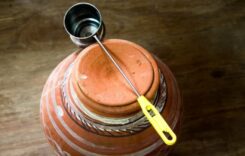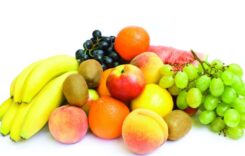Passover, otherwise called “Pesach” in Hebrew, is one of the most significant celebrations in the Jewish schedule – in any case, the coronavirus pandemic implies that the current year’s festivals will be curiously quieted.
Passover honors God freeing Jews from bondage in old Egypt and Moses driving them to their opportunity as a country.
The celebration’s name originates from the conviction that God “disregarded” the Jewish homes when executing the Egyptian firstborns in the tale of Exodus.
What is Passover?
The occasion of Pesach, or Passover, is a yearly weeklong celebration honoring the liberation of Jewish people groups from servitude (in antiquated Egypt). The Hebrew name, “Pesach,” signifies “to passover” on the grounds that the plague in Egypt that slaughtered all firstborns ignored the Israelites’ homes, saving the lives of their youngsters.
Passover Dates
Passover is a springtime celebration. The yearly dates depend on the Hebrew schedule, from the fifteenth day of the Hebrew month of Nissan through the 22nd day.
Note: What is frequently called Passover today has its beginnings in two old observances. Nissan 14 was the Passover (Pesach) as referenced in the Torah; right now, a contribution to the Lord, the penance of a sheep, was butchered during the evening and arranged. Nissan 15 (the new day beginning at twilight) was the start of the seven-day Festival of Unleavened Bread. On this beginning of Nissan 15, the Passover sheep that had been yielded and arranged on Nissan 14 (that equivalent evening) was eaten that night (presently Nissan 15), alongside unleavened bread. After some time, the Festival of Unleavened Bread ordinarily got known as “Passover” and is normally considered as beginning at nightfall between Nissan 14 and Nissan 15.
| Year | Passover Begins (at sundown) | Passover Ends (at sundown) |
| 2020 | Wednesday, April 8 | Thursday, April 16 |
| 2021 | Saturday, March 27 | Sunday, April 4 |
Passover starts at night at nightfall preceding the primary entire day of the celebration.
What’s the history behind Passover?
As per the Exodus the offspring of Israel had been slaves in Egypt for a long time, and God guaranteed that he would discharge them from bondage.
This would just come after the Egyptian Pharaoh had rejected their discharge and God had discharged 10 torment on Egypt to exhibit his capacity.
Following the 10 torment, the Pharaoh requested Moses to quickly remove his kin from Egypt.
The Israelites stuffed and left promptly without enough time for their bread rise – therefore, unleavened matzah bread is eaten at Passover rather than risen or grain items.
Lamenting his choice, the Pharaoh requested his military to pursue the Jews to the Red Sea, where they were caught.
In any case, they were spared by a supernatural occurrence. God advised Moses to extend his staff over the ocean making the waters part and permitting the Jews to cross on dry land.
Similarly as the seeking after Egyptians entered the remote ocean in interest, the waters shut and they all suffocated.
The liberated Israelites sang melodies of acclaim to God in appreciation and afterward they began their excursion in the desert.
When does it start?
Passover begins on Wednesday 8 April this year and goes on for seven or eight days.
The celebration is customarily watched for eight days by numerous Jewish individuals around the globe, including the individuals who left Israel as a major aspect of the Jewish diaspora.
For those observing Passover for eight days, it will end this year on the night of Thursday 16 April.
In the Torah (the assemblage of Jewish sacred writing), Passover starts on the fifteenth day of the long stretch of Nissan, the day in the Hebrew schedule on which the Jewish left from Egypt a huge number of years back.
It’s no occurrence that the recognition harmonizes with the Christian celebration of Easter, with Good Friday falling a few days after the main day of Passover this year.
In the old dialects of Latin and Greek, Easter was called Pascha, which gets from the Hebrew word Pesach.
How important is it?
Raymond Simonson, CEO of north London Jewish public venue JW3, says that Passover is one of the most significant Jewish celebrations.
“Even the most secular Jews, who might not celebrate any other festival – they might not fast on Yom Kippur, or go to synagogue on Jewish New Year,” he says.
“If there’s one festival they’ll do it’s more likely to be Pesach than anything else.”
Why is it called Passover?
Jewish individuals accept that when the Pharaoh at first chose not to see the diseases unleashing destruction on his kin, God at that point exacted the most noticeably terrible plague of all — the demise of each firstborn male in Egypt.
So as to ensure the firstborn children of the Israelites, God taught Moses to advise the Jewish individuals to stamp their front entryways with sheep’s blood.
God at that point continued to “disregard” the houses that had been smeared with sheep’s blood, in this manner saving the firstborn Israelite children from the destructive plague.
How is it celebrated?
During Passover, Jewish families meet up for a customary feast called the Seder, which signifies “order”, since everything is done in a specific request.
This request is trailed by perusing guidelines in a book called the Haggadah.
“The whole theme of the special meal on the Seder night is to remember the exodus of Egypt as if we were there,” explains Simonson.
“It’s not when ‘they’ were, our ancestors. It’s ‘when I left Egypt, this is what happened to me.’ It’s educational and experiential.
“We must remember what it was like when we were slaves, so we must fight so there are no more slaves and everyone is free.”
The Seder plate incorporates an assortment of nourishments, every which is representative.
The sheep bone speaks to the blood of the sheep that decorated the entryways of the Jewish individuals as God ignored them; the simmered hard-bubbled egg is an image of grieving; the maror (harsh herbs) speaks to the sharpness the Jews needed to suffer as slaves; the charoset (a sweet, dark colored mixture) speaks to the mortar used to manufacture the Egyptian pyramids; and the dunking of parsley into salt water speaks to the tears of the subjugated Jewish individuals.
What is matzah?
As indicated by the Book of Exodus, the Israelites left Egypt in such a rush, that their bread didn’t have the opportunity to rise.
This why Jewish individuals eat unleavened bread during Passover, also called matzah.
It is generally seen as the bread of poor people, and is accordingly expended to help Jewish individuals to remember the hardships their progenitors persevered.
For seven or eight days after the primary Seder night, Jewish individuals go without eating a wide range of raised nourishments including bread, cakes and biscuits.
A few people think of innovative answers for this, including Simonson.
“I make lasagne but with sheets of matzah instead of pasta,” he says.
During the Seder night, numerous Jewish kids play a game where one bit of matzah, called the afikoman, is covered up. The youngster who finds the afikoman toward the finish of the feast wins a prize.
So, Coronavirus?
With most states compelled to remain at home, numerous families are rolling out huge improvements by they way they are praising this year. Many are going to innovation, utilizing applications, for example, FaceTime, Zoom and Google Hangouts to sort out Seders for families who can’t get together face to face. For individuals searching for a Seder to join over the web, simply Google “Zoom Seder” and you will wind up with alternatives remembering guides for beginning your own.
The coronavirus emergency has likewise made it difficult to get things for the customary Seder plate, which contains nourishments speaking to various pieces of the story. Rabbis state that in the event that you can’t get a thing, it is satisfactory to discover an image of the thing, print it out and place it on the plate.










